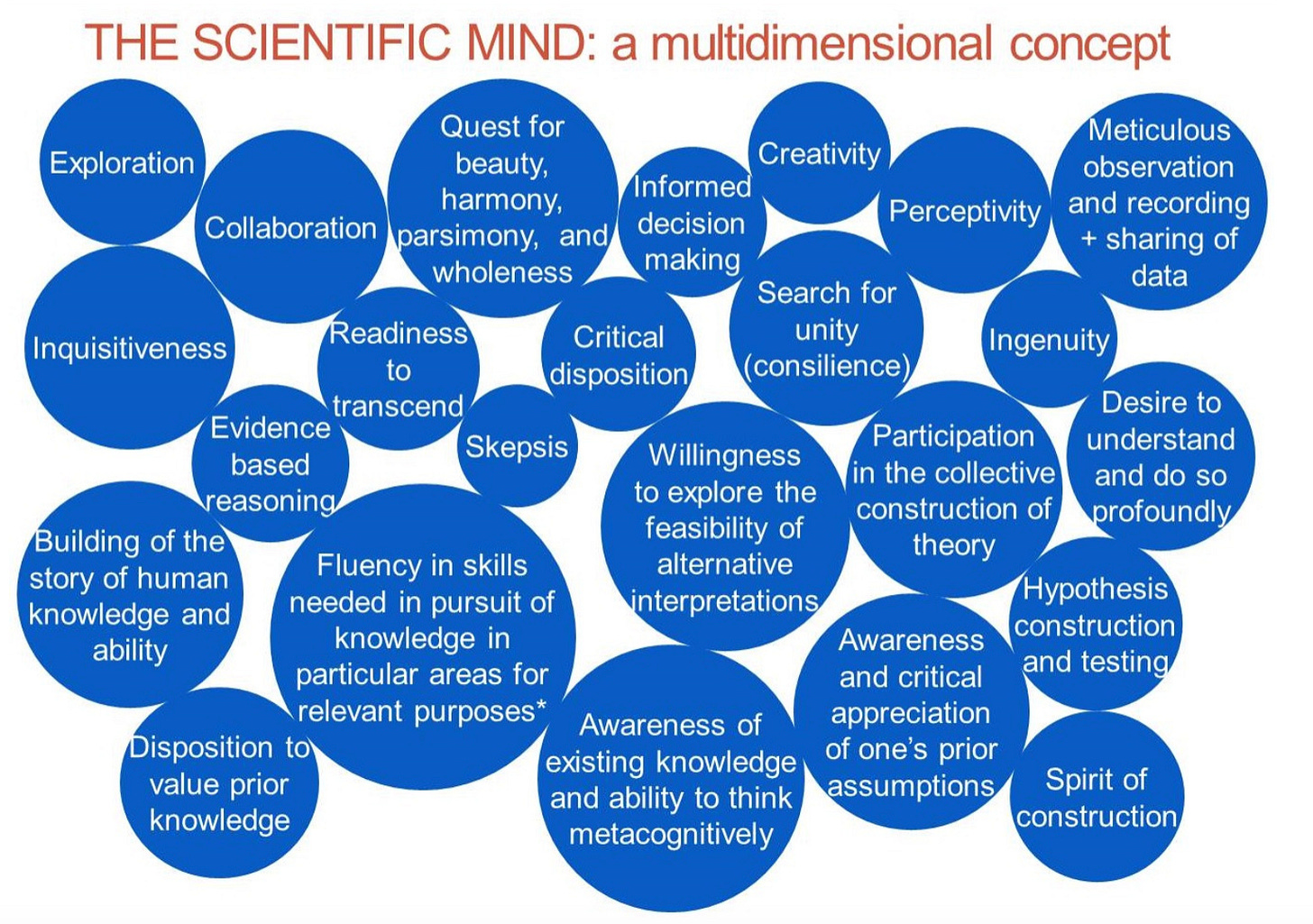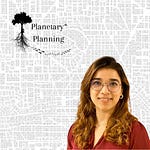*note: we apologize for a relatively bad sound quality. We suggest the use of the accompanying transcript to better be able to follow. We hope you can thus nevertheless enjoy this insightful conversation!*
During this episode, Jan Visser shares his views on “scientific” and caring mindsets, about which he has learned much through his various transdisciplinary experiences. We begin with a definition of theoretical physics, and first try to understand how this connects to processes of learning and caring. Through this process, we have a fascinating conversation about how dispositions for thinking “scientifically” and in caring ways might emerge. Jan shares several conditions for “Building the Scientific Mind”, which he has developed over many years at transdisciplinary colloquia around the world, which are shown in an overview in the following image:

We follow Jan’s journey of discovery towards these ideas, which in itself is fascinating because it shows how deep involvement with one quite specific discipline - theoretical physics - can be brought into important dialogues with many other disciplines, while also being the root for seeking knowledge and understanding about how people learn, and what kind of learning might be more in tune with a healthy planet.
Jan argues that care, not being rule-based nor a product, is rather a disposition (just like the “scientific mind”), which must be developed, and certain conditions that can be more or less helpful for this. He has learned that care depends on how we perceive relationships within specific diads (one with one other) and argues that care requires some level of knowledge about one-another, from both sides, including between the earth and human beings. To build such knowledge and understanding that can encourage care, however, Jan highlights that learning, in schools and throughout life, needs to be about more than the things that are immediately useful for the daily lives of individuals. As he puts it, “it’s important to recognise that our planet is a living planet, and not just a physical planet with life on top of it, but life is an intricate part of that physical structure that our planet has become.” In this sense, theoretical physics and planetary planning seem to come quite close together.
Take-aways for planners, by Jan Visser:
Do not plan in a way that it forces people in a certain direction, because then any change they undergo will not be owned by the people who adopt it.
Instead, create conditions that facilitate the adoption of different behaviours individuals are happy with and about and that contribute to constructive interaction with a changing environment.
Links mentioned in the episode, and further reading:
The transdiciplinary Learning Development Institute, set up by Jan Visser
Retrospective on Building the Scientific Mind series of colloquia
Book “Seeking Understanding”: Visser, J., & Visser, M. (Eds.) (2020). Seeking understanding: The lifelong pursuit to build the scientific mind. Leiden and Boston: Brill | Sense.
Paper on “Care for the Earth, Ourselves, and Others”
Paper on Learning and the Scientific Mind, called “Two Things Commanding Attention”
Book on Learning: Visser, J., & Visser-Valfrey, M. (Eds.) (2008). Learners in a changing learning landscape: Reflections from a dialogue on new roles and expectations. Dordrecht: Springer.












Share this post